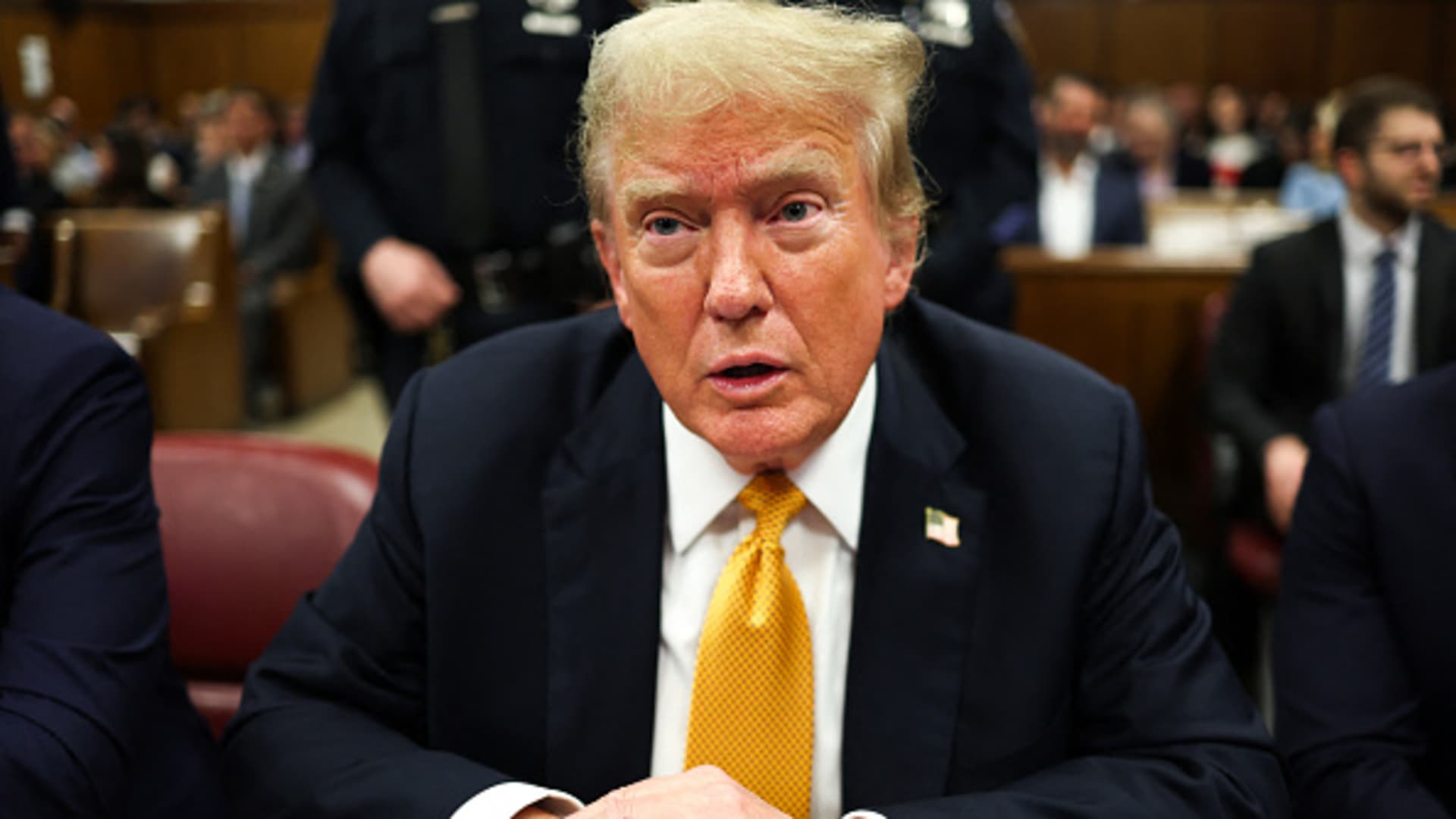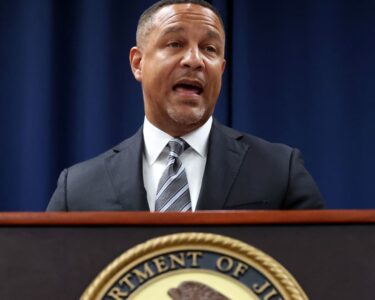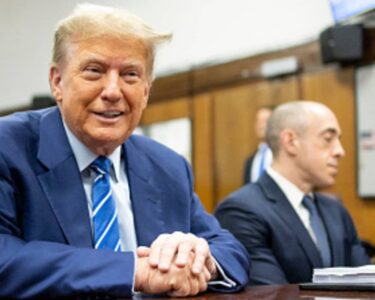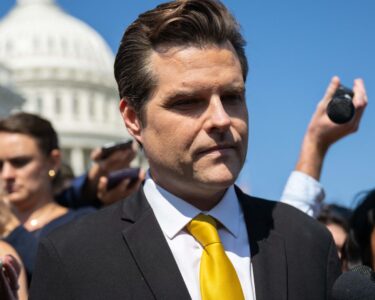The New York jury weighing criminal charges against former President Donald Trump ended its first day of deliberations on Wednesday after asking to rehear key bits of trial testimony from Trump’s ex-lawyer and fixer Michael Cohen, and from the former publisher of The National Enquirer.
Jurors also asked Judge Juan Merchan for a readback of the instructions the judge gave them Wednesday morning.
Latest Trump trial update: Jury reaches verdict in hush money case
The requests were the first notes the 12-member jury sent out to Merchan after it deliberated for several hours.
Jurors will rehear the testimony and judge’s instructions when they return to Manhattan Supreme Court on Thursday morning to resume deliberations.
Trump is charged in the case with falsifying business records related to reimbursing Cohen for the $130,000 hush money payment that Cohen gave porn star Stormy Daniels shortly before the 2016 presidential election.
Jurors asked for Enquirer publisher David Pecker’s testimony about a phone conversation he had with Trump while Pecker was in an investor meeting, as well as Pecker’s testimony about buying the life rights of Karen McDougal, who has said she was Trump’s mistress.
The panel also asked for a readback of Pecker’s testimony regarding a meeting at Trump Tower in New York and for Cohen’s testimony about that meeting.
Earlier Wednesday, Trump raged about the case, where he faces 34 felony counts.
“Mother Teresa could not beat these charges,” Trump told reporters stationed outside the courtroom in Manhattan Supreme Court.
“These charges are rigged. The whole thing is rigged,” the former president said.
“The whole country’s a mess,” Trump went on, making apparent references to a surge in U.S. immigration and his loss to President Joe Biden in the 2020 election before repeating his attacks against Judge Merchan.
“Between the borders and fake elections, and you have a trial like this, where the judge is so conflicted he can’t breathe,” he said. “It’s a disgrace.”
Before Trump left the courtroom, Merchan spent nearly 90 minutes delivering instructions to the jury about how they must evaluate the charges.
If jurors reach a guilty verdict on any of those counts, Trump will become the first former U.S. president ever to be convicted of a crime.
The judge reminded them that they “must set aside any personal opinions or bias” against Trump during their deliberations.
He also told them that Trump’s decision not to testify at trial should not be held against him, noting that the defense does not have the responsibility of proving he is innocent of the charges.
“To the contrary, the people have the burden and they must prove beyond a reasonable doubt that the defendant committed that crime,” said Merchan.
“And if they fail to satisfy their burden of proof, you must find him not guilty.”
Merchan also instructed them about Cohen, who was the prosecution’s star witness.
The judge said Cohen is “an accomplice” in the alleged crimes for which Trump is on trial.
Turning to the felony counts with which Trump is charged, Merchan told jurors that under New York law, the crime of falsifying business records “must include an intent to commit another crime, or to aid or conceal the commission” of another crime.
He added that prosecutors “need not prove the crime was in fact committed.”
The crime that prosecutors claim Trump was trying to conceal is a violation of NY Election Law 17-152, which prohibits “a conspiracy to promote or prevent the election of a person to public office by unlawful means.” The election was the 2016 presidential election.
Trump also faces three other criminal cases, none of which is currently expected to start trial before November, when the Republican is on track to face President Joe Biden in a rematch of their 2020 contest.
Trump did not speak to reporters on his way into court Wednesday morning, breaking from his usual tactic of railing against the case and Merchan before each trial day begins. Trump also avoided talking to the press after leaving the courthouse Tuesday night.
Trump’s lawyer and a prosecutor gave closing arguments all day Tuesday and into the early evening.
Cohen testified at trial that he paid Daniels at Trump’s direction to buy her silence about an alleged one-time sexual tryst with Trump in 2006. Trump has denied that he had sex with Daniels.
Prosecutors claim that Trump, by falsely recording the reimbursements to Cohen as legal expenses, had criminally covered up their true nature, which was to protect his then-reeling campaign from losing the 2016 election to Democratic nominee Hillary Clinton.
At the time of the payment to Daniels, Trump’s candidacy had been rocked by disclosure of the so-called “Access Hollywood” tape, which captured him boasting to a TV host about groping and kissing women without their consent and getting away with it because he was a “star.”
Assistant Manhattan District Attorney Joshua Steinglass, in his summation Tuesday, tied the payment to Daniels to hush money paid before the election to a former alleged mistress of Trump, McDougal, and to the doorman of a Trump property who had shopped around a story about Trump impregnating a housekeeper.
The doorman’s story later proved to be false, and Trump has denied that he had an extramarital affair with McDougal.
“Everything Mr. Trump and his cohorts did in this case was cloaked in lies,” Steinglass said. “The name of the game was concealment, and all roads lead to the man who benefited the most, Donald Trump.”
Trump’s lawyers argue that Trump did nothing wrong and that Cohen is a habitual liar who is motivated by anger toward his former client.
“The story Mr. Cohen told you on that witness stand is not true,” defense lawyer Todd Blanche said in his own summation.
“There is no proof that President Trump knew about the payment before it was made” to Daniels, Blanche said.
“As I said to you in the opening statement, it doesn’t matter if there was a conspiracy to win the election,” Blanche argued.
“Every campaign is a conspiracy to promote a candidate.”






